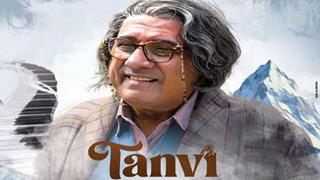Allegations Against Mahira and Fawad Khan: “Disrespect to Brave Soldiers”
According to AICWA’s press release, Mahira Khan allegedly criticized India's military response, describing it as “seriously cowardly.” The association also claimed that Fawad Khan supported divisive narratives by not speaking out against terrorism. The group called their actions “an insult to the brave soldiers who sacrificed their lives for the country.”
These allegations come in the wake of India’s retaliatory airstrikes on May 7, targeting nine terrorist hideouts in Pakistan in response to the Pahalgam terror attack on April 22. The operation, named Sindoor, has sharply escalated geopolitical tensions between the two nations.
AICWA Renews Its Demand for a Total Ban on Pakistani Artists in India
Reaffirming its longstanding position, AICWA reiterated a “strict and complete ban” on any form of collaboration with Pakistani talent. This includes actors, filmmakers, musicians, and financiers, with a directive that no Indian artist or production house should engage with Pakistani counterparts.
“No Indian artist will collaborate with any Pakistani talent, nor will any global platform be shared with them,” the statement emphasized.
Media Release
— All Indian Cine Workers Association (@AICWAOfficial) May 7, 2025
All Indian Cine Workers Association (AICWA) Strongly Condemns Anti-India Statements by Mahira Khan and Fawad Khan
Mumbai, India – The All Indian Cine Workers Association (AICWA) strongly condemns the anti-India statements made by Pakistani actress Mahira Khan and… pic.twitter.com/pEjqzAgy8a
Bollywood Collaboration Under Scrutiny: AICWA Targets Music Industry and Film Projects The AICWA also took aim at Indian music companies and singers who continue to work with Pakistani artists on international platforms. Describing such partnerships as a “betrayal of national pride,” the association demanded accountability from those still engaging in cross-border collaborations.
In a particularly scathing remark, AICWA criticized the upcoming film Abir Gulal for casting Fawad Khan, calling it:
“A disgrace to the sacrifices made by our brave soldiers,” — a pointed reference to the 2019 Pulwama terror attack, where over 40 Indian paramilitary personnel lost their lives.
The association questioned the motives behind such casting choices, stating:
“What message do such filmmakers want to convey?”
National Interest Over Artistic Freedom: AICWA's Message to Indian Film Industry AICWA called upon all stakeholders in the Indian film and entertainment industry — including producers, directors, actors, and streaming platforms — to put national interest above artistic collaboration.
“Indian filmmakers, regional cinema industries, and global streaming giants must respect the sentiment of the nation,” said the association.
This statement reiterates AICWA’s previous bans on Pakistani artists in 2016 and again in 2019, both triggered by heightened cross-border tensions. With the recent resurgence of military conflict and nationalistic sentiments, AICWA is pushing for the enforcement of these directives with renewed intensity.
A History of Cultural Clashes and Boycotts
The debate over allowing Pakistani artists to work in India is not new. While art and cinema have often been viewed as bridges across political divides, national security concerns have consistently overridden such efforts in times of conflict. Past instances, including the Uri and Pulwama attacks, led to sweeping boycotts of Pakistani talent, forcing filmmakers to recast roles and cancel collaborative projects.
Despite these bans, several Indian production houses have continued to engage Pakistani singers and musicians, particularly in digital and music collaborations, drawing criticism from nationalist groups and cultural watchdogs.
Public Sentiment and the Future of India-Pakistan Entertainment Ties
The reaction to Mahira and Fawad Khan’s alleged comments has not only fueled outrage among cine workers but also stirred public sentiment, especially on social media platforms where calls to #BoycottPakArtists have resurfaced. Whether this leads to actual policy enforcement or remains symbolic remains to be seen.
Conclusion: National Pride vs Artistic Diplomacy
As India grapples with increasing hostilities across the border, cultural exchanges like film and music remain caught in the crossfire. While some advocate for maintaining artistic diplomacy, groups like AICWA argue that national pride and security must come first.
The future of India-Pakistan creative collaboration hangs in the balance — and for now, the message from AICWA is loud and clear: there is no room for compromise when the nation’s sentiments are at stake.




















